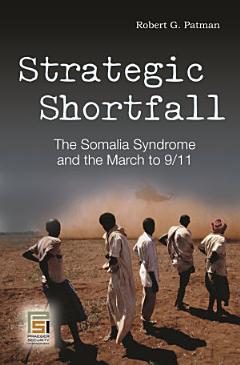Contrary to conventional wisdom, this book argues, it was not the 9/11 attacks that transformed the international security environment. Instead, it was "Somali Syndrome," an aversion to intervening in failed states that began in the wake of the1993 U.S./UN action in Somalia. The botched raid precipitated America's strategic retreat from its post-Cold War experiment at partnership with the UN in nation-building and peace enforcement and engendered U.S. paralysis in the face of genocide in Rwanda, Bosnia, and Darfur. The ensuing international security vacuum emboldened al-Qaeda to emerge and attack America and inaugurated our present era of intrastate conflict, mass killings, forced relocations, and international terrorism.
As this even-handed treatment shows, the Somali crisis can be connected to seven key features of the emerging post-Cold War world security order. These include the fact that failed states are now the main source of world instability and that new wars are driven by racial, ethnic, and religious identity issues.

